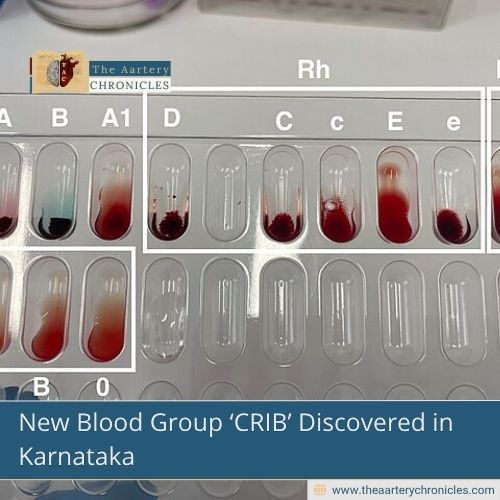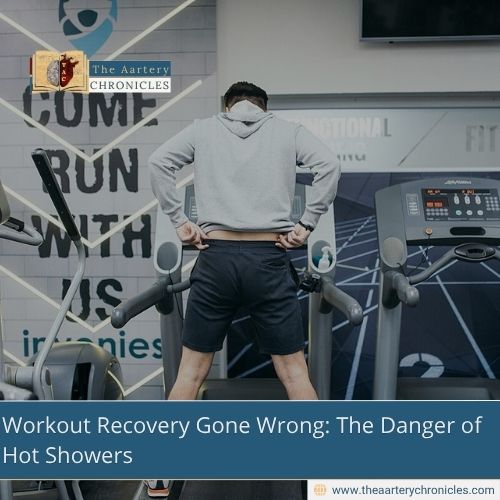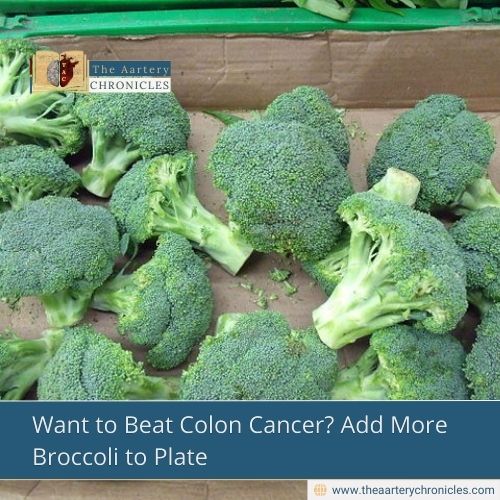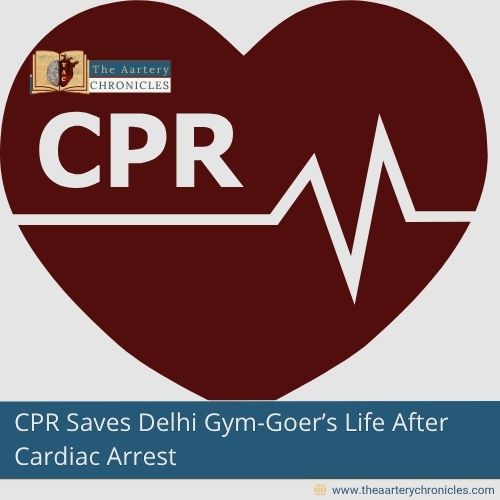
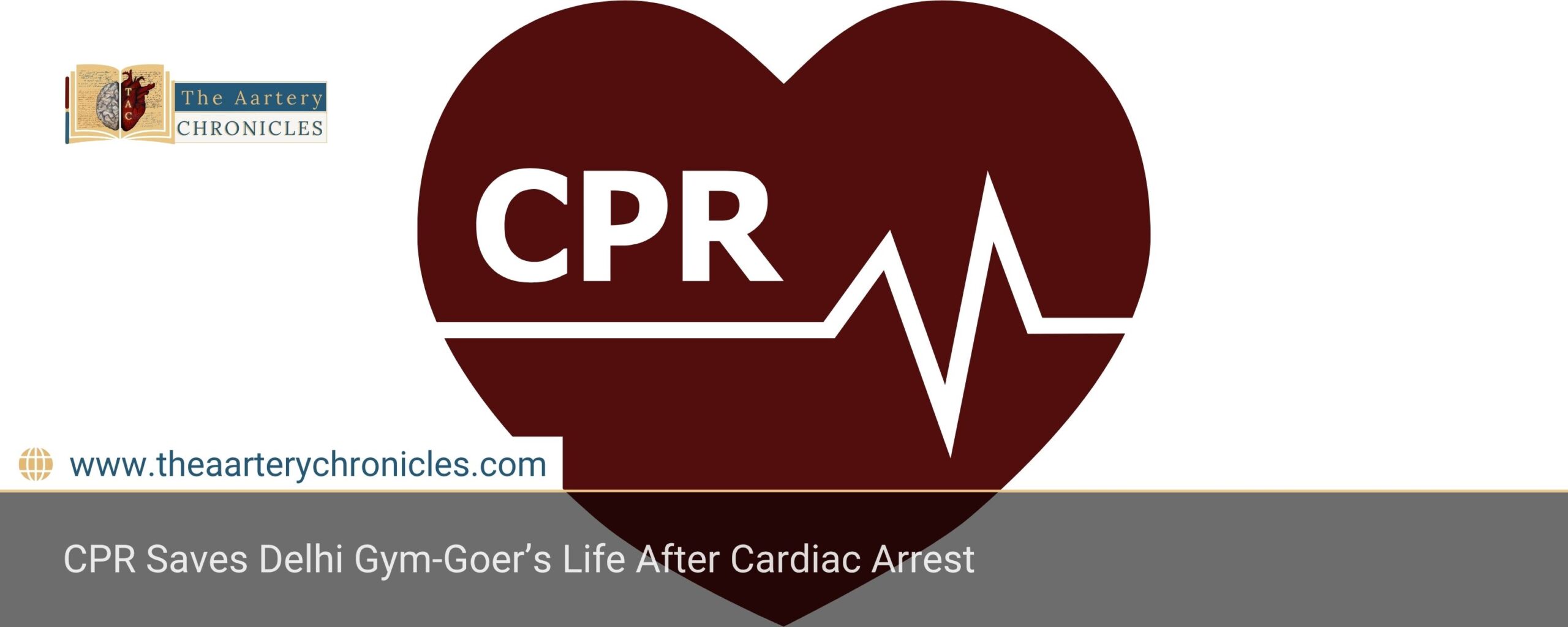
CPR Saves Delhi Gym-Goer’s Life After Cardiac Arrest
Summary: Despite leading a clean, disciplined life, 40-year-old Mohit Sachdeva suffered a sudden cardiac arrest while working out. Thanks to timely CPR at the gym and emergency medical care, his life was saved in just eight minutes. Tests later revealed triple artery blockages, an alarming reminder that fitness doesn’t always guarantee heart health.
Nowadays, we believe that healthy eating habits, abstaining from alcohol, being active, protect us from cardiac issues. We couldn’t be more shocked to know that despite this healthy lifestyle, a 40- year-old ,man from Lajpat Nagar of Delhi, named Mohit Sachdeva, had a sudden cardiac arrest during his gym workout. This underlines the fact that regular heart check-ups should not be forgotten or ignored.
Mohit was a regular gym goer since the past 20 years. On July 9, as per his routine, he reached the gym at 7.15 a.m. and began his workout. It was, at 8.45 a.m., while doing a 180 kg. leg press, Mohit felt dizzy and collapsed and suffered a sudden cardiac arrest.
Saved in eight minutes- crucial to a cardiac arrest
Doctors say that every second into a cardiac arrest is very crucial, as, the heart suddenly stops beating, the brain is deprived of oxygen, and within a few minutes, the organs stop working. It was sheer luck that a person at the gym knew CPR (cardio-pulmonary resuscitation) and Mohit was given the same.
No pulse detected on reaching hospital
Mohit was rushed to the Medanta-Moolchand Heart Centre, but his heart was not beating and he had no pulse. His pulse was detected on the monitor after he was given advanced CPR and electric shocks. Thereafter, he was immediately put on a ventilator, said Dr. Abbas Ali Khatai, Emergency Consultant.
Every second mattered, and without the quick response and initial CPR given to him at the gym, Mohit could have had permanent brain damage.
Doctors say that in India, CPR is delayed, hence the young people who collapse from cardiac arrest are unable to survive.
Test results showed three blocked arteries
Urgent tests were carried out by the medical team as soon as Mohit’s heart rhythm was stable, and the results were shocking!
Dr Tarun Kumar, Interventional Cardiologist at Medanta-Moolchand Heart Centre, told the media that “three of Mohit’s heart vessels were blocked, two of them completely”.
An angioplasty (minimally invasive surgery) of the most recently blocked artery was performed by the doctors, which widened the artery and a stent (a tiny, metal mesh) was placed to keep it open.
The doctors decided that, as Mohit’s heart was very weak, they would wait for a while before treating the other two blockages. Mohit was taken off the ventilator in 24 hours, and he was discharged from the hospital within three days.
What were the warning signs?
Mohit did show some signs but those did not strike him as alarming. His wife, Ruby, said that last year, on a trek to Vaishno Devi, he felt a dull pain in his left hand, but dismissed it as a muscle strain. While working out, he also often felt a dull pain but chose to ignore it.
This dull ache was not muscle pain but angina, a warning given by the heart that it is not receiving enough blood, said Dr. Kumar to the media. Mohit had been ignoring this pain for almost two years, considering it muscle-related pain. Unfortunately, many people make the mistake of overlooking muscle pain or fatigue, not even imagining that it is angina.
Mohit’s tests also showed that he had high blood pressure, borderline high cholesterol, and a fatty liver, all of which were conditions he was unaware of.
Intake of protein powders
Ruby states that Mohit had recently begun consuming herbal supplements and protein powders to support his gym training.
Experts warn against excessive or unregulated supplement use, even though there is no direct link proven in this case.
“Consuming very high amounts of protein, especially from powders, can put strain on the kidneys and may indirectly impact heart health,” says Dr Kumar.
Animal studies show that a high-protein, high-fat diet can speed up plaque build-up in the arteries, thereby making blockages more likely.
Get regular heart checkups
Dr Kumar said that “staying fit doesn’t always mean your heart is healthy. We advise all Indians above 25 to get annual heart checkups, especially if there’s a family history of heart disease. A simple cardiac workup and endurance test before joining a gym could prevent tragedies.”
Conditions like thickening of the heart muscle or a genetic tendency to develop blood clots often go undetected until something goes wrong.
The life-giver CPR
It was the timely CPR at the gym that saved Mohit’s life. Dr. Khatai says
“Community-level CPR training can save countless lives. Most sudden cardiac arrest victims don’t make it to the hospital because no one around them knows what to do. Quick CPR can mean the difference between life and death.”
Recovery after cardiac arrest
Discharge from hospital is not the end of recovery after a cardiac arrest. It has been advised by the doctors that a strict rehabilitation plan must be followed after discharge.
Dr. Kumar recommends 10–15 minutes of daily walking daily and gradually increasing to 30–40 minutes over a period of six weeks. Once the fitness of the patient shows improvement, a treadmill test is conducted before permitting heavier activity. Safe and regular exercise helps with weight control, improves blood flow, and improves heart health.
This incident was an eye-opener for Mohit and Ruby. Ruby said that Mohit led a very disciplined life, eating home-cooked meals, rarely consumed alcohol, was a non-smoker and a regular exercise-doer. According to them, he was the last person who could have had a heart attack, given his disciplined life.
It is to be noted that if you ignore subtle signs like
- Chest or arm pain
- Breathlessness
- Unusual fatigue
It may prove to be dangerous.
This near-death experience of Mohit Sachdeva emphasises the importance of getting
- Annual heart checkups done
- Increasing CPR awareness
- Paying attention to any warning signs
- Rupal Sonpal
- Health News and Updates
- 31 July 2025
- 17:00

